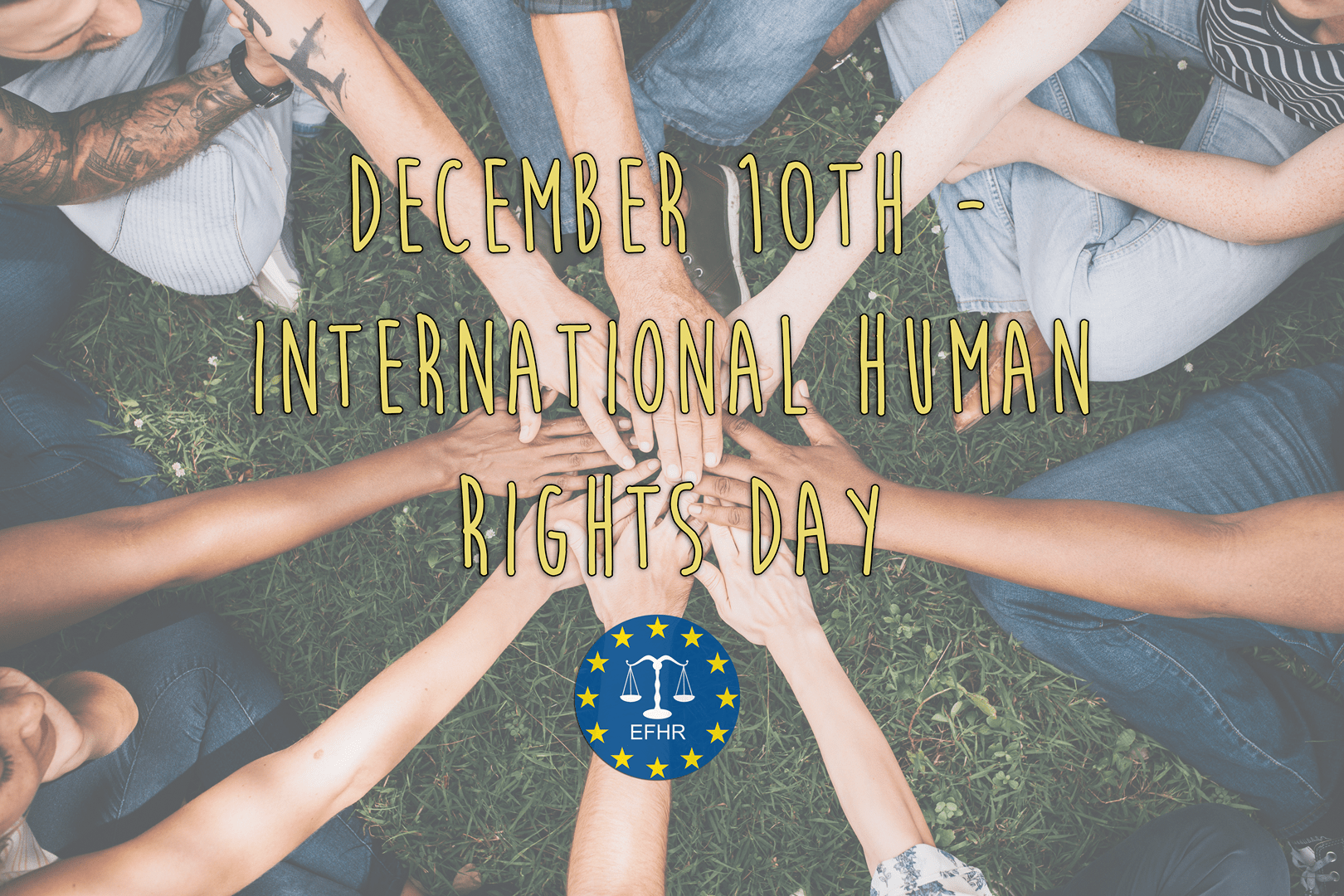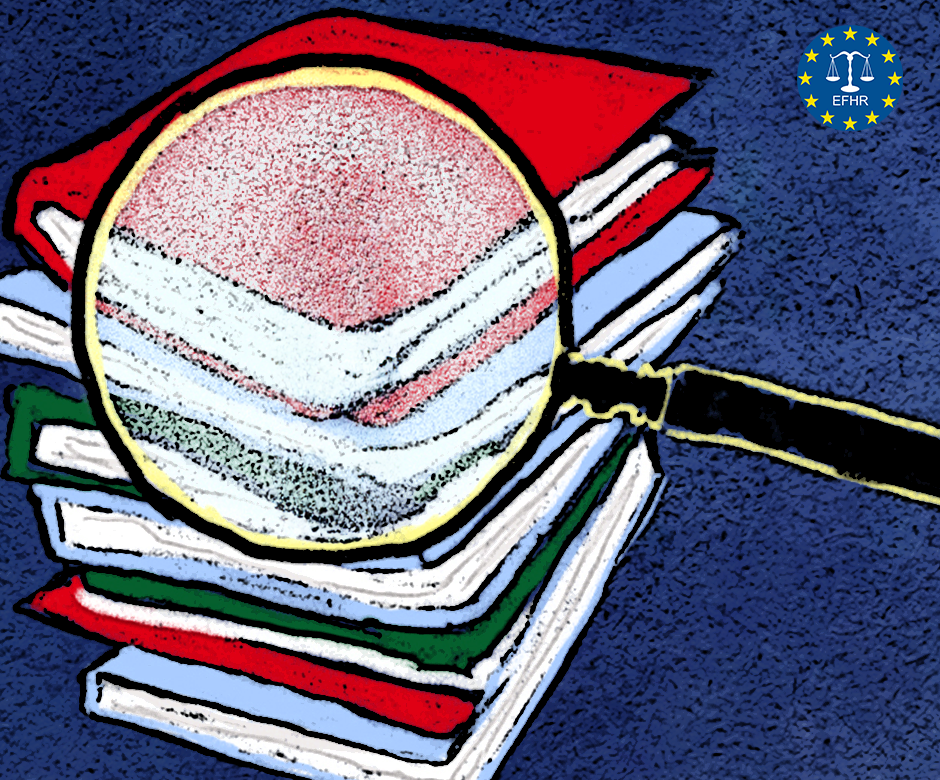- 2018/12/10
Public figures give thoughts on Human Rights Day

Human Rights Day is celebrated every year on 10 December since the United Nations General Assembly adopted the Universal Declaration of Human Rights in 1948. The ratification of the document enabled laws and policies to embrace human rights, which to this day made us freer. This year, the Universal Declaration of Human Rights marks its 70th anniversary, a milestone document that proclaimed the absolute rights which everyone is innately entitled to as a human being, regardless of race, color, religion, sex, language, political or any other opinion, nationality, property, birth or another status. The Declaration sets out universal values and a common standard of achievement for everyone. Indeed, it establishes the equal dignity of every person. Moreover, it counts as the most translated document in the world, available in more than 500 languages.
The day is usually marked both by high-level political conferences and meetings, as well as cultural events and exhibitions dealing with human rights issues. Many governmental and non-governmental organizations active in the human rights field also set up special events to commemorate the day and spread awareness of human rights concerns in order to prevent future abuses.On this occasion, EFHR decided to conduct interviews with representatives of the public and find out their opinion on the human rights situation in Lithuania as well as ask them some questions related to their field of work. We invited human right specialist Birutė Sabatauskaitė and filmmaker Romas Zabarauskas to share their experience.
Romas Zabarauskas: “We can’t always expect art to pursue an educational mission“
Romas Zabarauskas is the director of the movie “We Will Riot“, first movie in Lithuania in which the main character is portraited by an African-American actor (Ebeneezer Nii Sowah), and “You Can‘t Escape Lithuania“, first Lithuanian movie featuring a love scene between two men. His works are known for examining identity and diversity themes. In 2016 he published “Lietuva atsiskleidžia: 99 LGBT+ istorijos“ book, in which various LGBT+ community members shared their life stories and experiences. R. Zabarauskas often takes public actions against homophobia, hate crimes and other abuses of humans rights.
However, Romas tries to avoid the “human rights“ definition. „I understand that this is a honorable foundation of the democratic society. However, while growing up in Lithuania, I see this definition as emotionally related to the certain battleground of values; most of the people find themselves in it despite their own choices. I try to find new definitions to name, probably, similar things. One of my favourite words is “equality“, because it is more specific.“
While talking about progress in human rights area, Romas did not express a definite answer. Even though he left for experts to talk about a worsening of the situation, he distinguished positive changes he sees in his environment – a growing openness, visibility and searches for solutions. “This is already a lot, but we have to pursue for institutional changes, which would ensure an equal society for future generations.“ However, Romas points out hate crimes – still a frequent occurrence in Lithuania‘s public space. “I constantly see hateful comments, some of them threatening, both towards LGBT+ community and me. I have chosen not to react to them in any way, because I don’t have enough time for that.“
When asked, how it should be fought against hatred towards LGBT+ community, R. Zabarauskas points out the main measure: “I think the most important thing is openness. LGBT+ persons have to come out and their relatives, friends and colleagues have to strongly and publicly support LGBT+ equality. This is the basis without which any changes won‘t be possible. Nothing happens with the time – time is needed only for our certain actions, which we have to take.“
The filmmaker states what is needed to ensure LGBT+ equality establishment: it is the legalization of same sex couple marriages and adoptions, also the amendment of the law on the protection of minors, the necessary legal framework for trans individuals and the science-based gender sexuality education in schools. In the pursuit of these goals, the role of artists is equally important: “Art engages in public debate and can therefore make a significant contribution to change, but its impact does not always has to be direct. We can’t always expect art to pursue an educational mission, because then we will lose another pleasure of living – to admire complex, dialectical works.“
Birutė Sabatauskaitė: “Youth are not the future; they are the present”
Our next interviewee – the director of Lithuanian Centre for Human Rights, human rights specialist Birutė Sabatauskaitė. When asked what is the first thought that comes to mind when she hears the term “human rights“, B. Sabatauskaitė does not hesitate: “Respect, dignified life and happiness.“
At the beginning of our conversation, when we talk about the current situation of human rights in Lithuania, the specialist calls it mixed. She points out the current ongoing conversions in our society, which are shown by the unification of people of various professions in the light of teachers situation. However, B. Sabatauskaitė says that governmental institutions show worrying tendencies. Even though the institutions try to establish a dialogue, it can sometimes become one-sided – the government tries to ask and listen to the opinions of the civil society and non-governmental organizations, but they are not included to the final decisions.
When talking about the current human rights status of distinct social groups, B. Sabatauskaitė emphasizes persons with disability, LGBT and national minorities groups. To this day, not all requirements relating to the adaptation of premises or workplaces for disabled people have been implemented, the specialist also misses the public debate regarding this issue. LGBT rights are also in stagnation because the main initiative regarding trans persons rights comes only from our national courts. Also, talking about a partnership, B. Sabatauskaitė states that although we have had the law on equal treatment for a long time now, there are questions regarding its implementation. National minorities groups are also in need of conversation, there are noticeable efforts in trying to split the community, especially when talking about displays of russophobia. She also notes that we are in the process of information warfare, where most of the victims are locals, for example, Lithuanian Russians minority, who are constantly accused of disloyalty no matter what they do.
B. Sabatauskaitė, when asked about the progress of human rights in the past 10 years, sees a lot of positive changes, both in public opinion and legislation. As one of the biggest breakthroughs, she mentions Law on domestic violence, which helped to recognize domestic violence as the public crime. The other very important achievement is Law on Fundamentals of Protection of the Rights of the Child, which finally prohibited all forms of violence against children. There is also a progress in handling disability issues. The governmental institutions are initiating a dialog and listen to the opinion of the community of persons with a disability because as it is constantly accentuated by the Lithuanian Disability Forum, no questions regarding people with disability cannot be dealt without people with disability themselves. This, according to B. Sabatauskaitė, should be applied to all the questions regarding various social groups. The human rights specialist also shared her joy about the youth, which is very active in the civic field – young people all by themselves organize discussions, pursue solutions, they interested in many issues regarding various social groups. She notes the ability of young people to think critically, to value and to devote themselves to human rights. “I disagree with the saying that youth is our future. On the contrary, I think that they are the present, and groups of very different age can participate in the decision making now.”
The EFHR would like to thank our interviewees for their collaboration and efforts to improve human rights situation in Lithuania.



